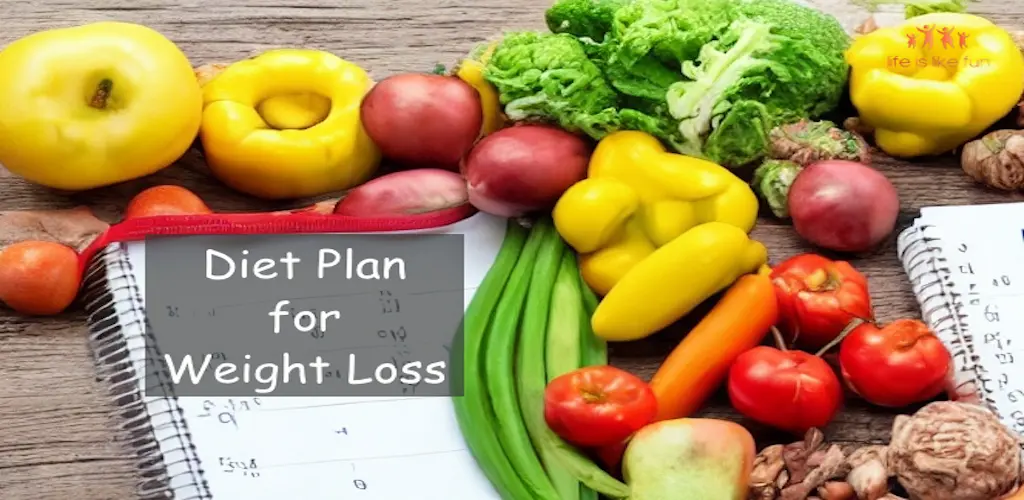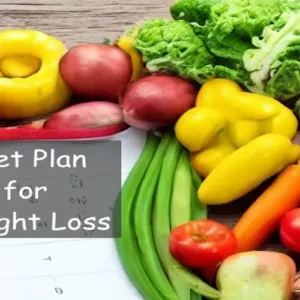Finding the best diet plan for weight loss can be confusing. There are many options, from diets that cut out fats or carbs to new superfoods and supplements. It’s tough to know which one is right for you. In this post, Best Diet Plan for Weight Loss we’ll look at different diet plans and help you find the one that works best for you. Let’s get started on finding a diet that fits your needs.
- Seek Professional Guidance
- Personalize Your Strategy For Best Diet Plan
- Prioritize Safety and Sustainability
- Exploring the Options
- Critical Questions to Ask
- The Path to Sustainable Success
- Final Thoughts for best diet plan

Seek Professional Guidance
Before diving headfirst into a weight loss program, it’s crucial to consult with your healthcare provider. Your medical history and any medications you’re taking can impact your weight loss journey. Your healthcare provider can offer personalized guidance and ensure your approach is safe, especially if you have physical or medical challenges.
Share your past weight loss experiences and any curiosity about trendy diets like Weight Watchers with your provider. They may recommend joining weight-loss support groups or consulting with a registered dietitian to map out your best diet plan for weight loss.
Personalize Your Strategy For Best Diet Plan
Remember, there’s no one-size-fits-all solution in the world of weight loss diets. Your preferences, lifestyle, and weight-loss objectives should shape your choice. Here’s how to tailor your approach:
- Reflect on Past Experiences: Think about previous diets you’ve tried. What did you like or dislike about them? Could you sustain them, and did they yield results? Pay attention to how these diets made you feel, both physically and emotionally.
- Consider Support: Determine whether you prefer going solo on your weight loss journey or if you thrive with the support of a group like Weight Watchers. If you opt for group support, decide whether in-person meetings or online communities suit you better.
- Budget Matters: Different weight-loss programs come with varying costs. Some require you to invest in supplements or special meals, visit weight-loss clinics, or attend support meetings. Ensure that your chosen program aligns with your budget.
- Health and Dietary Needs: If you have specific health conditions or dietary preferences due to cultural, religious, or ethical reasons, make sure your chosen diet respects and accommodates these requirements.
Prioritize Safety and Sustainability
While the allure of rapid weight loss can be tempting, a gradual and sustainable approach often prevails in the long run. The general recommendation is to aim for a weight loss of 0.5 to 2 pounds per week, as this is more likely to lead to lasting results.
The key to success lies in making gradual, healthy lifestyle changes in your eating habits, exercise routine, and overall behavior. Remember, behavior change plays a pivotal role and has a lasting impact on your best diet plan for weight loss.
When selecting a weight loss diet, consider the following attributes:
- Flexibility: Opt for a plan that incorporates a variety of foods from all major food groups, including low-calorie foods. It should allow occasional treats and include foods readily available at your local grocery store.
- Balance: Ensure your chosen diet provides the right balance of nutrients and calories. Extreme restrictions or complete removal of food groups can lead to nutritional deficiencies.
- Enjoyability: Choose foods and meal plans that you genuinely enjoy and can see yourself sticking to in the long term. Sustainable weight loss requires lasting commitment.
- Incorporate Activity: Physical activity should be an integral part of your plan. Exercise complements calorie reduction and offers numerous health benefits, including preserving muscle mass during weight loss.
Exploring the Options
The landscape of weight loss diets is vast, but most programs fall into a few major categories. While each diet has its unique features, studies have shown that the differences in weight loss outcomes among them tend to be relatively small.
Here’s a breakdown of common diets:
- Balanced Diets (DASH, Mayo Clinic, Mediterranean, Weight Watchers): Flexible, nutritionally balanced, and sustainable for the long term.
- High-Protein Diets (Dukan, Paleo): May not be flexible, potentially leading to deficiencies, and sustainability may vary.
- Low-Carb Diets (Atkins, South Beach): May lack flexibility, could result in deficiencies, and long-term adherence might be challenging.
- Low-Fat Diets (Ornish): Not flexible, but nutritionally balanced and possibly sustainable.
- Meal Replacement Diets (Jenny Craig, HMR, Medifast, Nutrisystem, SlimFast): May lack flexibility, but balance is possible with healthy meal choices.
- Very Low-Calorie Diets (Optifast): Not flexible and not meant for long-term use without medical supervision.
Critical Questions to Ask
Before committing to a weight loss diet, be sure to ask yourself the following questions:
- Program Details: What’s involved in the diet? Does it offer guidance that suits your unique situation? Does it require purchasing special supplements or meals? Is there online or in-person support? Does it equip you with the skills to maintain your weight loss over time?
- Scientific Foundation: Is there scientific research backing the weight loss approach? If you’re considering a weight loss clinic, what qualifications and experience do the providers, dietitians, and staff possess? Will they collaborate with your regular healthcare provider?
- Health Risks: Could the diet pose health risks, particularly given your medical history or medication regimen?
- Expected Outcomes: What kind of weight loss can you realistically anticipate? Does the program promise rapid results or claim to target specific body areas? Are before-and-after photos overly impressive? Does it provide strategies for sustaining weight loss over the long term?
The Path to Sustainable Success
Remember, achieving sustainable weight loss is not just about shedding pounds; it’s about adopting a healthier lifestyle. Focus on selecting a diet that aligns with your long-term goals and offers a practical, enjoyable, and lasting approach. Avoid diets that leave you feeling deprived or hungry, as these often lead to discouragement and weight regain. The most effective path to weight loss success combines a balanced diet with regular physical activity and enduring, healthy lifestyle changes.
Also Read : Launching Your Weight Loss Journey with a Healthy Diet Plan
Final Thoughts for best diet plan
Your weight loss journey is a deeply personal one, and the best diet plan for weight loss is the one that resonates with your individual needs. Resist the allure of trendy diets and the choices of others; instead, consult with healthcare professionals, stay well-informed, and make a decision that fosters your long-term well-being. With confidence and commitment, embrace the path towards a healthier, happier you.

